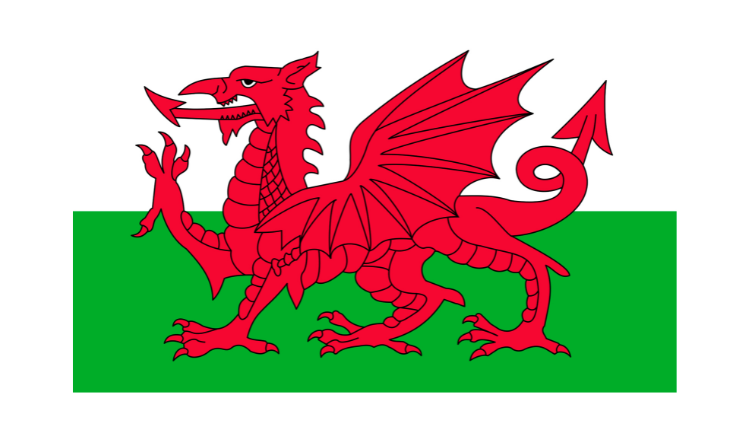How many childcare practitioners care for children who seem to have perpetual runny noses? I know it happened in my setting – I should have shares in a tissue company, I used so many boxes of tissues. The NHS state that it’s normal for a child to have 8 or more colds a year. They do gradually build up an immunity and eventually get fewer colds. Most colds get better in 5 to 7 days but can take up to 2 weeks in small children.
We accept that colds are part of a normal childminding day, but what about other illnesses? Very young children seem to have a series of illnesses, one after the other, especially when they start at a new setting, until they start to build up an immunity to the germs around them. It can be hard for parents, but it’s important to stress to parents that a child cannot attend when they are infectious and/or are clearly unwell.
Apart from having the child’s best interests at heart, we must follow the regulatory requirements. In England the EYFS 3.45 states “The provider must promote the good health, including the oral health, of children attending the setting. They must have a procedure, discussed with parents and/or carers, for responding to children who are ill or infectious, take necessary steps to prevent the spread of infection, and take appropriate action if children are ill” and in Wales the National Minimum Standards 10.1 states ‘The good health of children is promoted, and positive steps are taken to prevent the spread of infection with appropriate measures taken in cases of illness.’ and 10.2 goes on to say ‘No child is received if he/she appears to be ill. If children become unwell during their time in the childcare or play setting, care is taken to prevent possible infection of other children and parents are notified as soon as possible.’
Although we do our best to inform parents about any policies we have in relation to illness and administering medicines policy, during my childminding career, I found that some parents still sent children who are clearly unwell. I could write a book about the reasons – for example, “oh, I hadn’t noticed, they were fine when they got up this morning.” My main worry was a child being “dosed up” with infant paracetamol and only realising later in the morning when the effects were wearing off.
Why am I worried about parents giving a child medicine prior to arrival (and not telling me)?
Administering medicines is a serious issue and must be recorded, mainly to avoid the possibility of an overdose. Communication between parents and childcare practitioner is important so accurate (duplicate) records can be kept.
Some minor illnesses have similar symptoms to those that are more serious. Although we are through the pandemic, coronavirus hasn’t gone away. Symptoms may be mild in children but can be passed onto more vulnerable people. It’s important to follow the latest government guidelines. Coronavirus is now included in respiratory infections. Read the Government guidance about Managing specific infectious diseases.
It’s often thought that the signs of meningitis are a rash or spots, but the first signs are often a fever, being fretful (babies), severe headache, fever and muscle pain (children). On their own these symptoms could be thought of a child or baby just being “out of sorts”. However, it’s important to act quickly. There’s some great resources on the Meningitis Now website to help with easy identification of early symptoms and what to do.
What can childcare practitioners do?
- It’s important to have a good relationship with parents right from the start and discuss all your policies and procedures with parents, especially your illness policy and administering medicines policy.
- Having your illness and administering policies in writing makes it easier for a parent to refer to a written document if they are unsure of the setting’s procedures when their child is ill.
- Share information about exclusion periods for illnesses with parents.
- Maintain good hygiene procedures in the setting to lessen the risk of the spread of infection. It is important to follow the relevant guidance on infection control I.e., regularly cleaning surfaces, toys and equipment with an antibacterial cleaning product.
- Take swift action when a child becomes ill in your setting, moving them away from the other children and calling parents to collect their child.
- Ask parents to have their own back-up plan in case their child is ill. Encourage parents to have trusted people/relatives who know the child well, who can step in to care for a child, especially if it’s a mild illness. If a child is very ill, then only the primary carer is the person a child wants. If this is the case, there are government guidelines about taking time off for family and dependents. This isn’t necessarily paid time off, but an employer should be sympathetic to a request for time to deal with a sick child. Understand your rights to Time off for family and dependants. Some employers do allow paid leave for child related circumstances, so I’d advise parents to ask their employer.
#Signposts
- Spotlight on Illness and infection control
- Health protection in children and young people settings, including education – GOV.UK (www.gov.uk)
- Managing specific infectious diseases: A to Z – GOV.UK (www.gov.uk)
- Infectious diseases: education and childcare settings – GOV.UK (www.gov.uk)
- Is my child too ill for school? – NHS (www.nhs.uk)
- Meningitis Symptoms – Signs of Meningitis | Meningitis Now
- Health protection in children and young people settings, including education – Public Health Wales
- Exclusion Period for Common Infections (May 2023) Public Health Wales Health Protection Team
More for members
- Free CEY smart training course Promoting and supporting handwashing in your setting in the Fit and healthy theme.
- Free sample policies and guidance for members



